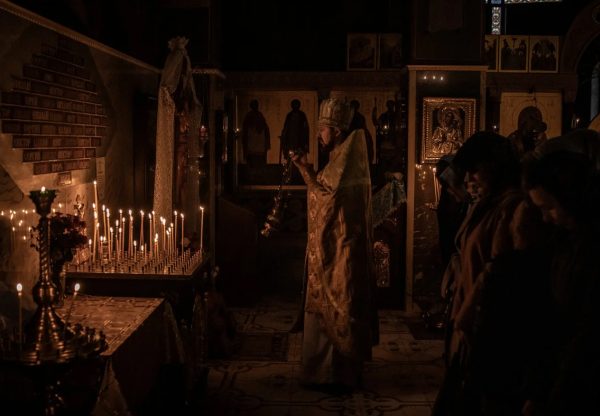With a new law, the Ukrainian government is trying to rein in what it says are anti-patriotic moves by the Moscow-affiliated Orthodox Church, banning it if it continues to comply with Russia’s orders. The Ukrainian Orthodox Church officially opposed the war, and He distanced himself from the Moscow PatriarchateHowever, Kyiv is concerned that she is working for him Russian agents infiltrated in the background.
Last month, the Ukrainian security services carried out raids and searches in orthodox Monasteries and religious institutions are looking for vandals among the clergy. The Security Service of Ukraine (SBU) has interrogated dozens of senior clergy, subjecting some to electronic fact tests.
In its findings, the agency said it “found printed materials that deny the existence of an indigenous Ukrainian population and language and question Ukraine’s right to exist as a state.” More than 30 priests have been arrested since February for passing information to the Russian invaders.
Independent Orthodox Church
About two-thirds of Ukrainians identify as Orthodox Christians in opinion polls. This percentage has not changed much in decades, but it is distributed differently. Fewer are declaring allegiance to the Moscow subordinate church, and more and more are approaching the new, independent Ukrainian church. At the same time, many simply declare themselves Orthodox without expressing a preference for either church.
In 2019, Orthodox leaders internationally officially recognized the Autocephalous Orthodox Church of Ukraine, a move strongly opposed by the Russian Church. Thousands of dioceses switched allegiance to the new branch, though thousands more remained loyal to Moscow, According to The New York Times.
Russia responds
In a televised address on Thursday, the Ukrainian president said the bill would “make it impossible for religious organizations, which maintain ties with the centers of influence in the Russian Federation, to operate on Ukrainian soil. We will ensure intellectual independence and will not allow Russia to manipulate Ukrainians and undermine our country from within.” We will not allow anyone to build an empire in the Ukrainian spirit.
However, the Ukrainian president did not explain how such a law would be implemented, which in fact opens up issues of freedom and secularism. Russia’s reaction was strong. A representative of the Russian Church, Vladimir Legoyda, wrote on Telegram that Zelensky’s proposal violated international law and common sense. “The current Ukrainian authorities have openly become enemies of Christ and Orthodoxy,” Medvedev said.
Secularism and liberalism
Ukraine’s constitution guarantees “the right to freedom of personal philosophy and religion”, including the right to “perform religious rites and rituals alone or collectively and without restrictions and to engage in religious activity”. But it also allows restrictions to be imposed on this right “in order to protect public order.”
If Ukraine banned a religious group, it would be among dozens of countries to do so, but most of them are authoritarian states a far cry from the kind of liberal democracy that Ukraine defends as its identity. The list includes Russia, which has banned Jehovah’s Witnesses, among others, as extremists.
“We are not Russia, which can only ban religious organizations,” said Ihor Kozlovsky, a theologian with the Shevchenko Scientific Society, a Ukrainian-American group based in New York.
He said the president’s statement aims to send a clear message to the church’s leadership to decide “whether it is a church of the Ukrainian people” or a supporter of the Russian worldview.






More Stories
F-16 crashes in Ukraine – pilot dies due to his own error
Namibia plans to kill more than 700 wild animals to feed starving population
Endurance test for EU-Turkey relations and Ankara with Greece and Cyprus